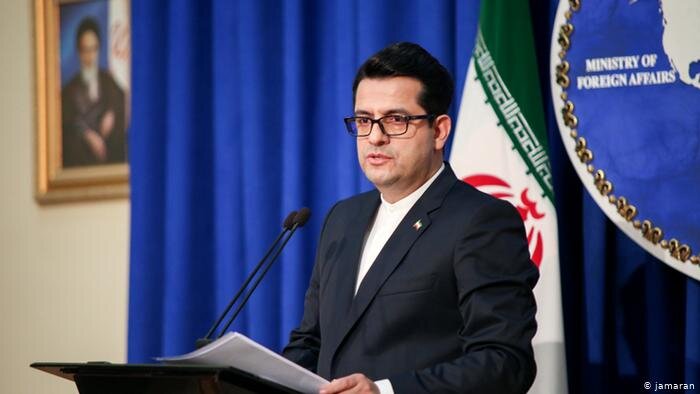Tehran slams so-called ‘Trump Deal’ as American hubris

TEHRAN — Foreign Ministry spokesman Abbas Mousavi has slammed the unveiling of the so-called “Trump Deal”, saying it showed the Americans’ deeply embedded hubris.
“Unveiling of so-called 'Trump Deal' by B. Hook only transpired the US' long fixated delusions dictated by their deeply embedded hubris and entitlement,” Mousavi said in a tweet on Thursday.
U.S. special representative for Iran Brian Hook unveiled the Trump deal’s provisos in an interview with the Saudi-owned Asharq al-Awsat newspaper, which was published on Thursday.
Hook told the London-based newspaper that an alternative accord to the 2015 Iran nuclear deal would “ensure that Iran has no path to a nuclear weapon,” reduce its uranium enrichment to zero, and prohibit the Islamic Republic from testing ballistic missiles.
Iran has repeatedly said it stands by its inalienable right to enrich uranium as part of its peaceful nuclear energy program.
On numerous occasions, Tehran has also distanced itself from any ambition to develop nuclear weapons as mandated by a religious decree issued by Leader of the Islamic Revolution Ayatollah Ali Khamenei.
The International Atomic Energy Agency (IAEA) has verified non-diversion of Iran’s nuclear activities on all occasions.
According to Press TV, a so-called case investigating “possible military dimensions” of Iran’s nuclear work was also closed in 2015 following conclusion of the nuclear deal.
According to the deal, also known as the Joint Comprehensive Plan of Action (JCPOA), the Islamic Republic accepted some limits on its nuclear program in exchange for sanction relief.
The U.S., however, has been relentlessly attacking the JCPOA under President Donald Trump. Trump has called the accord “the worst deal ever,” although, it has been ratified in the form of a UN Security Council resolution and hailed by its remaining signatories, the world body, and the European Union as a pillar of regional and international peace and security.
In May 2018, Trump withdrew the U.S. from the deal, restored the sanctions, and began forcing others to follow suit.
Following the U.S. move, Tehran began a set of nuclear countermeasures in response to the U.S. betrayal as well as refusal by the EU3 – the UK, France, and Germany – to keep honoring the deal by resisting the American sanctions.
The European trio recently triggered a dispute mechanism featured in the deal and accused Iran of violating it, although, Tehran’s reprisal fits within the JCPOA’s Paragraph 36, and is reversible as soon as the rest of the deal partners go back to their commitments.
MH/PA
